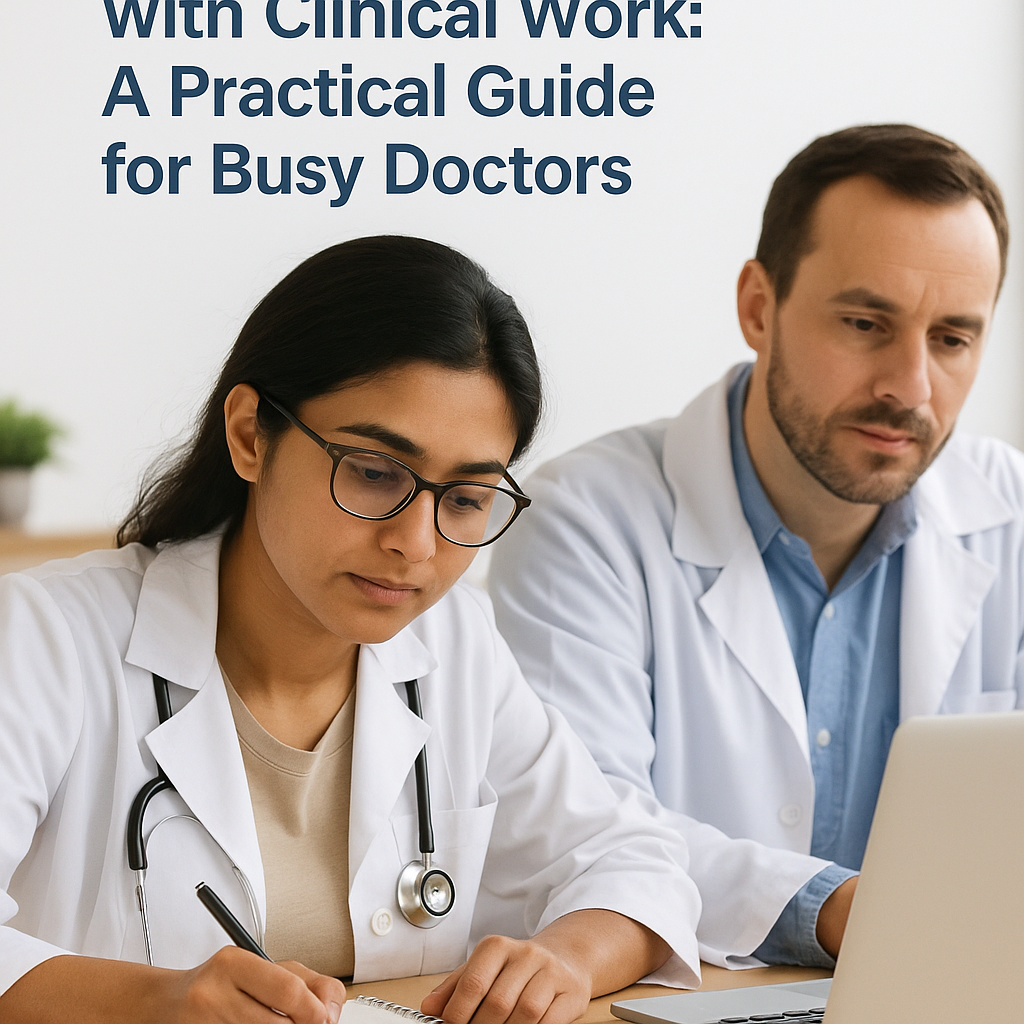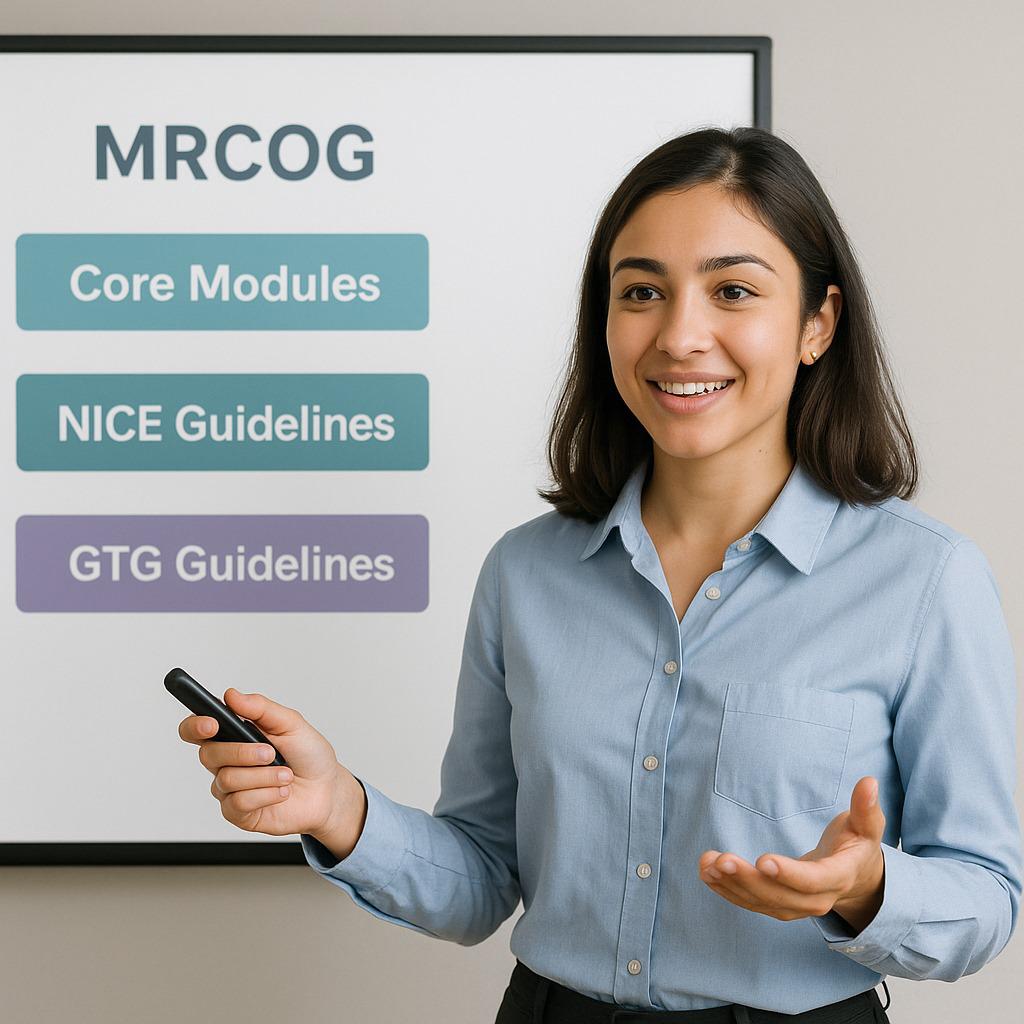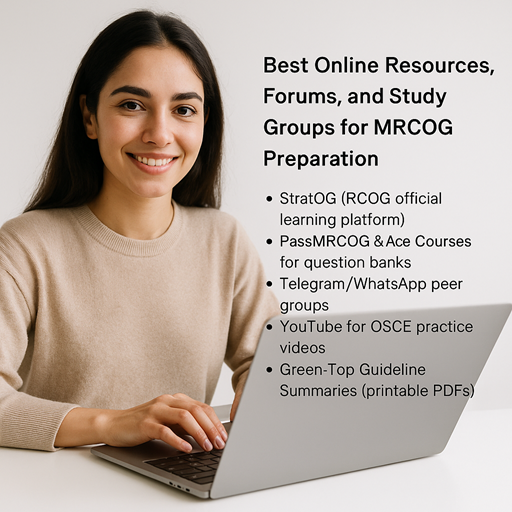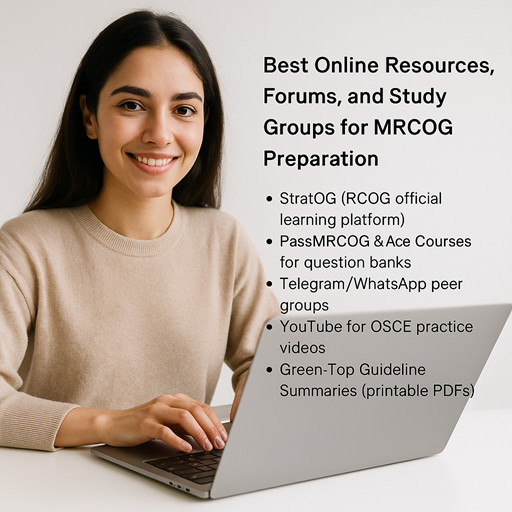2025-04-23 | Category: Mrcog 2

🩺 How to Balance MRCOG
Preparation with Clinical Work: A Practical Guide for Busy Doctors
Balancing MRCOG exam preparation while managing full-time
clinical duties is one of the biggest challenges faced by O&G trainees and
international medical graduates. Between unpredictable shifts, night calls,
emergencies, and family commitments, study time can feel like a luxury.
However, with a structured but flexible routine,
smart study tools, and sustainable strategies, you can navigate both worlds
effectively—and pass the MRCOG with confidence.
📅 Suggested Study Routine
for Working Professionals
Here’s a realistic weekly schedule that many successful
candidates have used while juggling their hospital or clinic work:
🗓️ Weekdays (Mon–Fri)
⏰ Time commitment: 1–2
hours/day
📌
Best times: Early morning (before work) or late evening (after dinner)
Focus Areas:
- Read
1 Green-top Guideline (GTG) or 1 TOG article
- Review
flashcards or summary notes
- Watch
1 short OSCE/lecture video (Part 3 candidates)
- Solve
10–20 SBA/EMQ questions (Part 2)
📆 Weekends (Sat–Sun)
⏰ Time commitment: 4–6
hours total (broken into 2–3 sessions)
Focus Areas:
- Full
topic revision (e.g., Maternal Medicine, PPH)
- GTG
consolidation
- Practice
mock timed questions
- Peer
discussion or OSCE role-play practice
🎯 Weekly Study Framework
(Sample Plan)
|
Day |
Focus |
|
Monday |
GTG: Antenatal Care + SBAs |
|
Tuesday |
TOG article (Fetal Medicine) |
|
Wednesday |
OSCE communication scenario |
|
Thursday |
GTG: PPH + flashcard review |
|
Friday |
SBA/EMQ timed quiz (20–30 Qs) |
|
Saturday |
Topic review + guideline mapping |
|
Sunday |
Mock test + performance analysis |
⚡ Tips for Study Efficiency: Work
Smarter, Not Longer
🧠 1. Use the Pomodoro
Technique
- Study
in 25-minute sprints followed by 5-minute breaks
- After
4 cycles, take a 30-minute break
- Helps
improve focus, especially after tiring shifts
📱 2. Leverage Digital
Tools
- Anki:
Use or create spaced-repetition flashcards
- PassMRCOG
/ Ace Courses: On-the-go question practice
- Audio
lectures: Listen during commutes or lunch breaks (e.g., Spotify,
YouTube GTG summaries)
🗒️ 3. Keep a Revision
Journal
- Write
down:
- Key
mistakes from mock tests
- Unfamiliar
GTG points
- Quick
mnemonics or “clinical pearls”
- Review
weekly to avoid repeating errors
🧘♀️ Mental Health &
Burnout Prevention
Preparing for MRCOG is a marathon, not a sprint. Protecting
your personal time is just as important as covering syllabus topics.
💡 Self-Care Tips:
- Set
boundaries: Block 1–2 "no-study" evenings per week
- Sleep
discipline: Aim for 6–8 hours; poor sleep = poor memory
- Involve
your support system: Let friends and family know your schedule
- Celebrate
small wins: Completing one GTG or scoring better in a mock test is a
big deal!
🫂 Bonus: Build a
Supportive Study Environment
- Find
a study buddy in the same time zone or work pattern
- Join
Telegram/WhatsApp peer groups for moral support
- Attend
monthly webinars or mock sessions
- Share
tips and get advice from seniors who've passed
✅ Final Thought
Preparing for the MRCOG while working full-time is tough—but
hundreds of doctors have done it, and so can you. The key is not
studying more, but studying effectively and consistently. Stick to a
routine that works for you, protect your energy, and focus on progress, not
perfection.
📥 Join our Telegram
group or sign up at MRCOG PASS EXAMINATIONS for:
- Weekly
study planners
- Live
GTG discussion sessions
- Peer
accountability and mentoring
🗂️ Your success is
built one focused day at a time. Let’s get you there.



